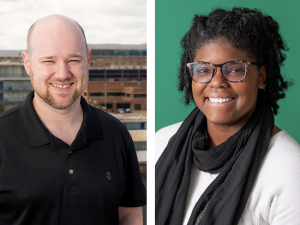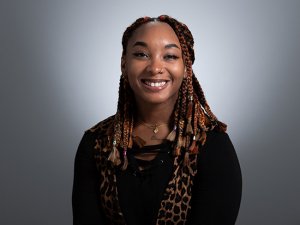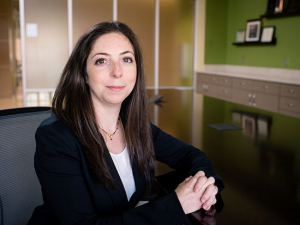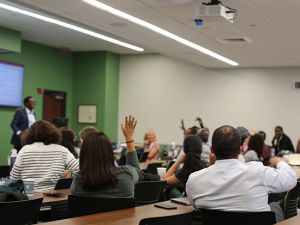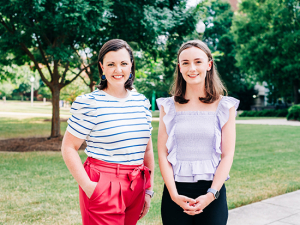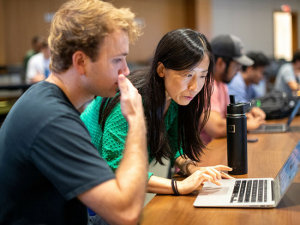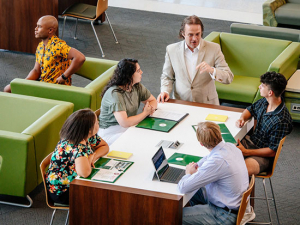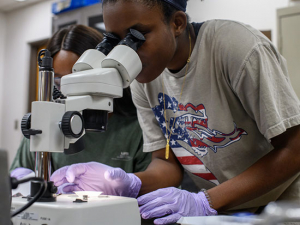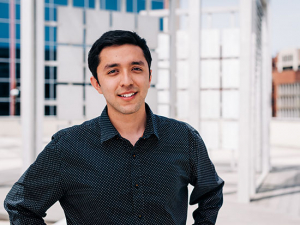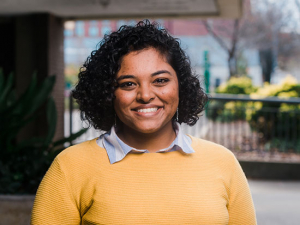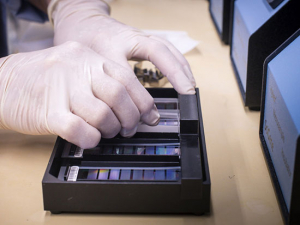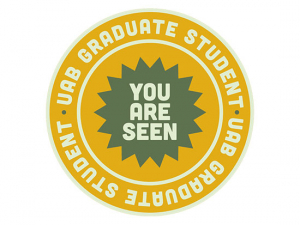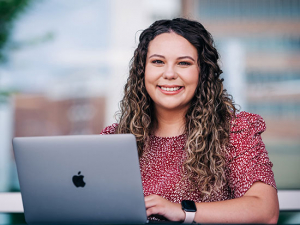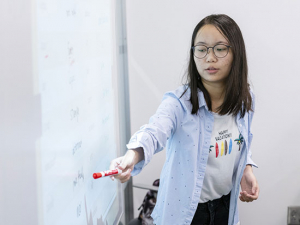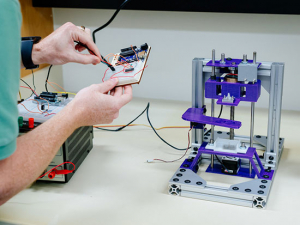How can understanding why we purchase certain foods affect our mental and physical health? And how can we learn to participate in civil discussions about ethical quandaries? These topics and more will be discussed by full-time UAB faculty who want to enhance community and provide stimulating enrichment opportunities for honors students during their yearlong fellowship beginning this month.
Members of the 2019-20 cohort of Honors Faculty Fellows include Krista Casazza, Ph.D., associate professor in the Department of Pediatrics; Robin Lanzi, Ph.D., professor in the Department of Health Behavior; Kevin McCain, Ph.D., associate professor in the Department of Philosophy; and Lynn Nichols, Ph.D., associate professor in the Department of Family, Community and Health Systems. The fellows were selected by a committee of honors students, and each received a $2,000 stipend to fund their projects.
Read below to learn more about how each faculty member plans to spend their fellowship.
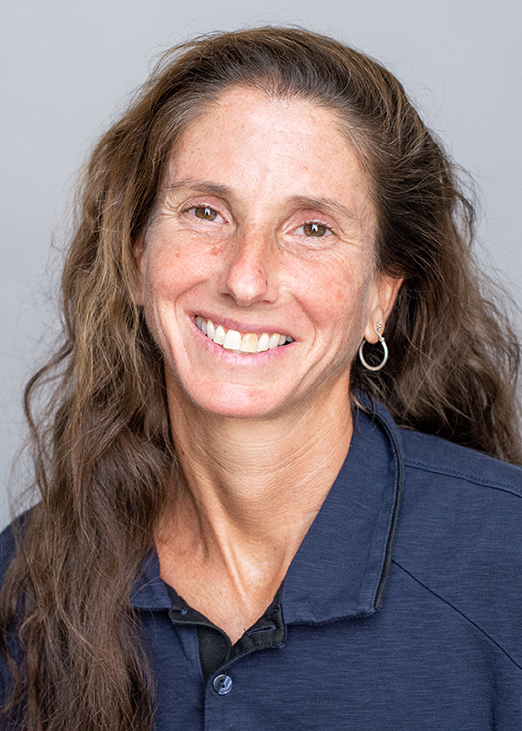
School of Nursing
Casazza will offer four seminars on nutrition and health literacy, each accompanied by a meal-preparation session using her mobile kitchen. The Charlie Cart, as it is called, is part of an all-in-one program that includes a kitchen on wheels and a full curriculum that connects the dots between food, health and the environment.
In the first seminar, students will learn about macronutrients and their specific functions and prepare chicken fajitas and guacamole; in the second, Casazza will focus on the correlation between eating breakfast and regularly scheduled meals and higher academic achievement, and students will make breakfast burritos and smoothies. The third session will focus on fad diets, with students prepping a meat-and-three-style ketogenic meal, and the fourth will discuss chronic inflammation and include a lesson on preparing hummus and Mediterranean cauliflower rice skillet meal.
Casazza says she hopes students develop a more nuanced understanding of the reasons people purchase and eat certain foods and the ways their own choices can affect their mental and physical health and their academic success.
“Despite nutrition being recognized as a determinant in three of the top four leading causes of death in the United States — heart disease, malignant neoplasms and cerebrovascular disease — our nation’s future health care leaders possess little evidence-based knowledge of the importance of dietary quality as it relates to food-choice priorities,” Casazza said.
To learn more about the seminars, email Casazza at kcasazza@peds.uab.edu.
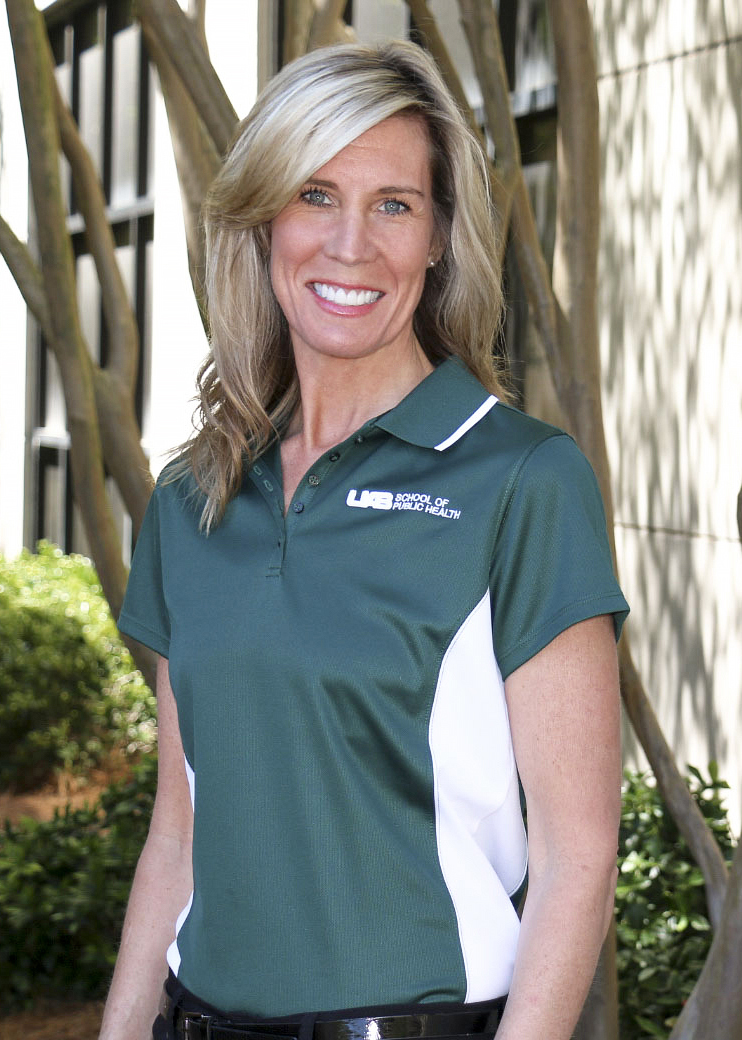
School of Public Health
Together with Angela Stowe, Ph.D., director of Student Counseling Services and Wellness Promotion, and UAB senior and Honors College student Juhee Agrawal, president of UAB’s chapter of Active Minds, Lanzi is developing an ambassadors program for mental health promotion. Under the trio’s mentorship, honors students will develop a presentation for their peers, focusing on mental health awareness, practical skills for addressing concerns and information on mental health services and activities on campus. Lanzi is also working to create a similar program in the School of Public Health.
To become an ambassador, students must attend four sessions on subjects such as emergency mental health training and active listening. Ambassadors will play a key role in the development of a mental health advocacy section on Canvas, which will house the materials used for the ambassadors’ seminars, plus messages from students, ideas for mindfulness exercises and other resources.
Lanzi, who taught a mental health promotion seminar in the Honors College during this past academic year, said the class and waitlist filled quickly, indicating the students are particularly interested the topic. During her time on the UAB Suicide Prevention Task Force with Stowe, Lanzi heard from students that they saw the need for a mental health promotion program on campus and desired to be a part of the solution.
“This is all about building capacity and a culture of resiliency,” Lanzi said. “One of the best ways to do that is to do so from within — with the students, for the students.”
To learn more about becoming a mental health promotion ambassador, email Lanzi at rlanzi@uab.edu.
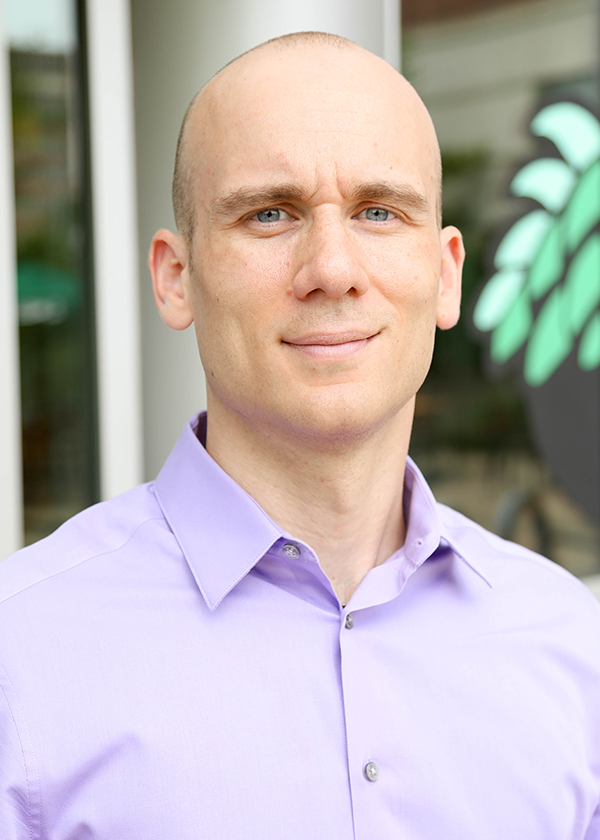
College of Arts and Sciences
During his “Philosophy Walk and Talk” series beginning in the spring, McCain will host walking groups in Five Points South, Railroad Park and other community spaces, during which he and students will attempt to answer some of life’s biggest questions: Why are we here? What is wisdom? What makes for a good life?
McCain says he will strive to help students think clearly on these and other deep issues while also introducing them to Southside locales. He says young people owe it to themselves — and to those around them — to think about these questions and be able to discuss issues without thinking any less of those with whom they disagree.
“It’s critical that students learn to debate the merits of different views in ways that are kind and compassionate toward the people who hold those views,” McCain said. “These questions are just as relevant now as they’ve ever been, and appreciation of potential answers to them can enrich students’ lives.”
To learn more about Philosophy Walk and Talk, email McCain at mccain@uab.edu.
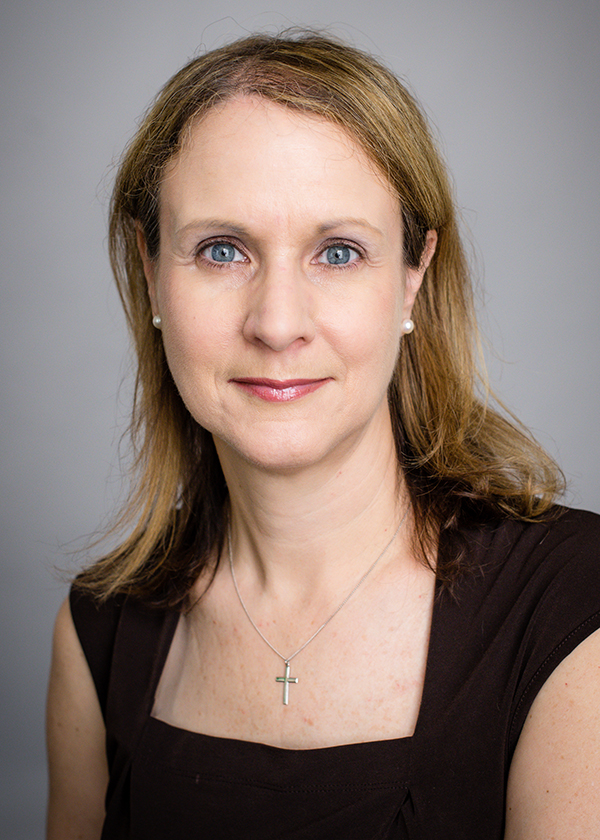
School of Nursing
As part of “The Ethics Café: Exploring Ethical Issues,” Nichols will host monthly interactive seminars in which students will learn to use ethical decision-making principles to explore their own values and consider differing viewpoints to gain insight into other people’s perspectives.
Topics will include empathy, leadership ethics and using ethical decision-making to make a difference locally and globally, among others. Nichols says the seminar environment will feature learning strategies to facilitate deeper thinking and offer a safe, supportive place for students to ask questions, participate in discussions and explore specific ethical issues. During the final seminar, students will work in collaborative teams to apply ethical decision-making in a competition involving the applications of ethical lessons in real-life situations.
“I want students to explore ethics to create an awareness of the importance of ethical principles that guide their life decisions,” Nichols said. “I also want to facilitate their development of the skills of humble inquiry and active listening to ethical viewpoints that differ from their own and to have the courage to conduct civil and caring conversations surrounding ethical issues.”
To learn more about The Ethics Café, email Nichols at lynnstover@uab.edu.
